第30章
THAT there is no sixth sense in addition to the five enumerated-sight, hearing, smell, taste, touch-may be established by the following considerations:
If we have actually sensation of everything of which touch can give us sensation (for all the qualities of the tangible qua tangible are perceived by us through touch); and if absence of a sense necessarily involves absence of a sense-organ; and if (1) all objects that we perceive by immediate contact with them are perceptible by touch, which sense we actually possess, and (2) all objects that we perceive through media, i.e. without immediate contact, are perceptible by or through the simple elements, e.g. air and water (and this is so arranged that (a) if more than one kind of sensible object is perceivable through a single medium, the possessor of a sense-organ homogeneous with that medium has the power of perceiving both kinds of objects; for example, if the sense-organ is made of air, and air is a medium both for sound and for colour; and that (b) if more than one medium can transmit the same kind of sensible objects, as e.g. water as well as air can transmit colour, both being transparent, then the possessor of either alone will be able to perceive the kind of objects transmissible through both); and if of the simple elements two only, air and water, go to form sense-organs (for the pupil is made of water, the organ of hearing is made of air, and the organ of smell of one or other of these two, while fire is found either in none or in all-warmth being an essential condition of all sensibility-and earth either in none or, if anywhere, specially mingled with the components of the organ of touch; wherefore it would remain that there can be no sense-organ formed of anything except water and air); and if these sense-organs are actually found in certain animals;-then all the possible senses are possessed by those animals that are not imperfect or mutilated (for even the mole is observed to have eyes beneath its skin); so that, if there is no fifth element and no property other than those which belong to the four elements of our world, no sense can be wanting to such animals.
Further, there cannot be a special sense-organ for the common sensibles either, i.e. the objects which we perceive incidentally through this or that special sense, e.g. movement, rest, figure, magnitude, number, unity; for all these we perceive by movement, e.g. magnitude by movement, and therefore also figure (for figure is a species of magnitude), what is at rest by the absence of movement: number is perceived by the negation of continuity, and by the special sensibles; for each sense perceives one class of sensible objects. So that it is clearly impossible that there should be a special sense for any one of the common sensibles, e.g. movement; for, if that were so, our perception of it would be exactly parallel to our present perception of what is sweet by vision. That is so because we have a sense for each of the two qualities, in virtue of which when they happen to meet in one sensible object we are aware of both contemporaneously. If it were not like this our perception of the common qualities would always be incidental, i.e. as is the perception of Cleon's son, where we perceive him not as Cleon's son but as white, and the white thing which we really perceive happens to be Cleon's son.
But in the case of the common sensibles there is already in us a general sensibility which enables us to perceive them directly; there is therefore no special sense required for their perception: if there were, our perception of them would have been exactly like what has been above described.
The senses perceive each other's special objects incidentally; not because the percipient sense is this or that special sense, but because all form a unity: this incidental perception takes place whenever sense is directed at one and the same moment to two disparate qualities in one and the same object, e.g. to the bitterness and the yellowness of bile, the assertion of the identity of both cannot be the act of either of the senses; hence the illusion of sense, e.g. the belief that if a thing is yellow it is bile.
It might be asked why we have more senses than one. Is it to prevent a failure to apprehend the common sensibles, e.g. movement, magnitude, and number, which go along with the special sensibles? Had we no sense but sight, and that sense no object but white, they would have tended to escape our notice and everything would have merged for us into an indistinguishable identity because of the concomitance of colour and magnitude. As it is, the fact that the common sensibles are given in the objects of more than one sense reveals their distinction from each and all of the special sensibles.